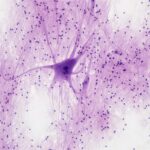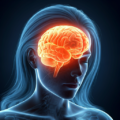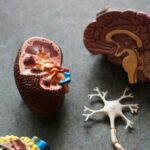If you’ve ever pulled an all-nighter and then found yourself struggling to focus or mixing things up, you’re not alone. You might be experiencing what scientists call attentional blink. A recent study explored what happens when you go a full... View Article
Tag Archive: science
Have you ever wondered how your brain weaves fleeting moments into cohesive memories? A groundbreaking study from the Kavli Institute for Systems Neuroscience in Norway sheds light on this remarkable process. The research team, led by Professors Edvard and May-Britt... View Article
It’s evident that how we breathe can affect how we feel – we tend to calm down when we focus on deep breaths and become more anxious when taking shallow ones. However, new research shows that breathing may also play... View Article
Have you ever wondered how your brain manages to hold information in mind for a short period of time? For instance, when you read the Wi-Fi password off of a cafe’s menu board and have to hold onto it in... View Article
In the 1970s, researchers John O’Keefe and Jonathan Dostrovsky discovered that certain cells in the hippocampus of rats were activated when the rats were in specific locations in their environment. These cells were dubbed “place cells” and are now known... View Article
A news article summarizes results from three neuroscientific research papers that provide evidence-based strategies to enhance memory consolidation. Photo by Katelyn MacMillan on Unsplash. The first paper suggests that if you would like to enhance your memory for prospective events... View Article
University students are made well aware of the importance of having a consistent sleep schedule, and the role that high quality sleep plays in cognitive performance. But how can shorter breaks improve memory? Are rest periods of just a few... View Article
In a recent McGovern Institute study described in an article by Anne Trafton, researchers have identified the brain circuit that is responsible for maintaining the motivation to learn new things or engage in daily activities. The circuit was specifically involved... View Article
Neuroscientist Nathan Michaels makes the analogy that brains are like machines. In this article, he states that all machines are made of a combination of structural elements that work together to produce a specific function. Machines also require inputs in... View Article
Professors at MIT just finished a study of 250,000 students worldwide involving online teaching techniques in higher education. The study was published in the Proceedings of the National Academies of Sciences and was meant to explore behavioural interventions to improve... View Article
The United States Medical Licensing (USMLE) program has announced that, come January 2022, its Step 1 exam scoring will be evaluated by pass/fail rather than a 3-digit number. This news has not been taken lightly by students and physicians, as... View Article
Like physical fitness, mental fitness is becoming a priority for an increasing number of individuals. Memory loss is a common fear that many of us try to curb with various mental exercises. However, it takes more than a few crossword... View Article
Photo by Sumeet B on Unsplash. Many college students are given the advice of “a good night’s sleep” when aiming for a good grade on a test. But researchers at MIT have found that the consistency of quality sleep matters... View Article
Technology continues to set the pace of change in business at a lightning-fast speed. When new technology and new ideas are introduced constantly, business owners need to provide their workers with the skills to adapt. This means that workers are... View Article
Photo by Casey Horner on Unsplash. Researchers from the University of Michigan have determined just how much of a nature dose you need in order to reduce stress. It is well known that taking time to be in nature leads... View Article
There is a popular belief that the left brain is the logical, rational and analytical side of the brain, while the right hemisphere is associated with emotion and creativity. Perhaps building on this idea of lateralization, some also hold that... View Article
On New Years Eve, 1983, Isaac Asimov wrote about his prediction of the state of the world and technology in the year 2019. Now that we have reached 2019, it is worth reflecting on his predictions. Some of Asimov’s most... View Article
Two decades ago, British linguist Richard Hudson defined hyperpolyglots as people who are fluent in at least 11 languages. Hyperpolyglots are rare but have existed for centuries, and neuroscientists are trying to understand the nuances that set them apart from... View Article
Cognitive scientists have known for several years that adults have a harder time learning a new language than children. However, it has never been clear just when this change occurs, and how long this “critical period” lasts. Researchers at MIT... View Article
The underpinnings of human cognition remain mostly a mystery. Despite the advancement of tools and technology in neuroscience, our understanding of the brain and its functions is pretty superficial. Part of the problem lies in how we describe neuroscientific phenomena.... View Article



















